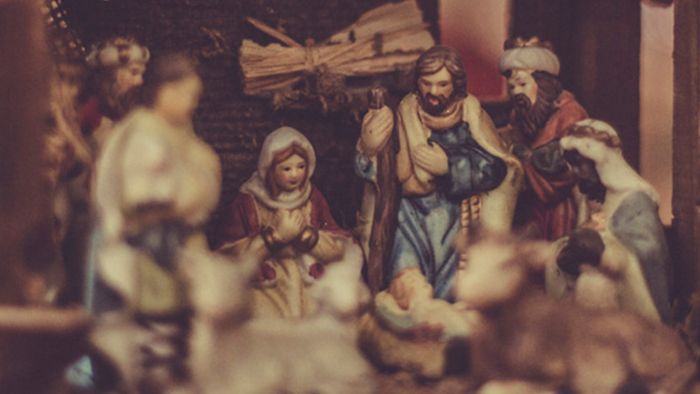Just the other night I heard a friend talking about how hard it was to find a place which sold nativity scenes. Being raised in the cradle of the church I was stunned at the scarcity of what appeared to me to be a staple of Christmas decorations growing up. I have seen the whole gambit of these miniature memorials: porcelain ones, plastic ones, wooden ones, glass ones, live ones, and Lego ones.
Nostalgic or Nuanced?
These scenes always seem to have a set cast: Mary, Joseph, Baby Jesus, a couple shepherds, some farm animals, and often times even the wise men (though the Biblical account doesn't show them arriving till later on). However, in reading Luke's account of the nativity I noticed something unique. Beginning in Luke 2:15 we read the story of the shepherds making their way into Bethlehem to the things which the angels just proclaimed to them. Up until this point these are the only known characters: Mary, Joseph and the newborn Jesus (Luke 2:4-7, 16), and the shepherds (Luke 2:15). But look at what the text says, and pay attention to the characters:
"And they went with haste and found Mary and Joseph, and the baby lying in a manger. And when they saw it, they made known the saying that had been told them concerning this child. And all who heard it wondered at what the shepherds told them. But Mary treasured up all these things, pondering them in her heart." (Luke 2:16-19)
Did you notice the pronouns Luke used? "And all who heard it wondered..." Stay with me for a second while we break down the grammar of this scene. The shepherd's are the ones giving the message here, grammatically they are not the subject of the verb "heard." Also it is important to note that the next verse begins with, what is known in Greek as a contrasting particle, which in English is translated: "But Mary." This particle of contrast places Mary as separate from the subject of the previous sentence, her actions of internal pondering is set up as happening outside of the group which "heard" and "wondered."
So let's recap the scene here: Luke tells us that "all who heard [the message of the shepherds] wondered at what the shepherds told them." What we know is that of the known characters we can eliminate the shepherds and Mary from "all who heard" given that they cannot grammatically or logically be included as the subject. We can also logically assume that Jesus is not included in here since part of the incarnation would mean that he is subject to the limitations of human growth (newborn infants probably aren't capable of hearing and responding in such a way!). So this would only leave Joseph as the last remaining character. Yet again, the Greek word used and translated as "all" implies a focus on group of individuals. If it was just Joseph who heard and marveled at the message of the shepherds Luke would have used a different word here.
So What?
What does this mean?
This means that already, even before the shepherds reached the manger scene, some other group of people flocked to see this baby Jesus. Perhaps it was the mere oddity of a baby being born in a barn, or maybe along with the shepherds and wise men, God revealed the news of this birth to another group of people which we do not read of in Scripture. Regardless of how the people got there, we know that what kept them there, and what amazed them while they were there, was the message of salvation which accompanied this child. There was something special about this Jesus. The significance of this event still stands: even at the earliest moments of Jesus' life, he was already attracting a crowd which was being won over at the message of Christmas.
An unknown number of individuals surrounded Jesus on the night of his birth and marveled at the story and Savior that God had made known to them. This is because even before Jesus began his public ministry, God had already begun the work of drawing the world to his Son. The Christmas story is an attractive story because Jesus is an attractive Savior. God has promised to display his salvation to the world (Psalm 67:2), and even at the manger he was already doing this.
Let the attractive nature of Jesus bring you hope this holiday season. We may worship because through Christ, God has made our hearts to worship (Psalm 119:49). We can boldly rest in our efforts of evangelism because we know our broken, but faithful efforts to share the gospel are caught up in the ultimate effectiveness of God's desire to draw men and women from all backgrounds to the person of Jesus Christ.
When worshiping Jesus, we worship the great desire of nations, the true pleasure of God, the prince of peace, Emmanuel, God with us.




